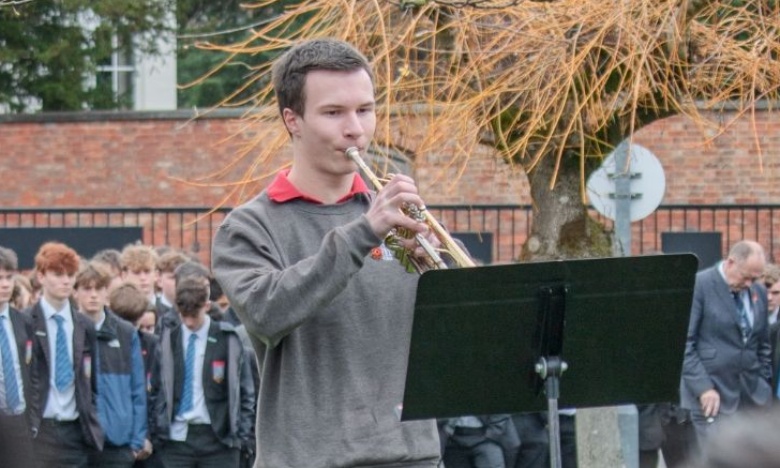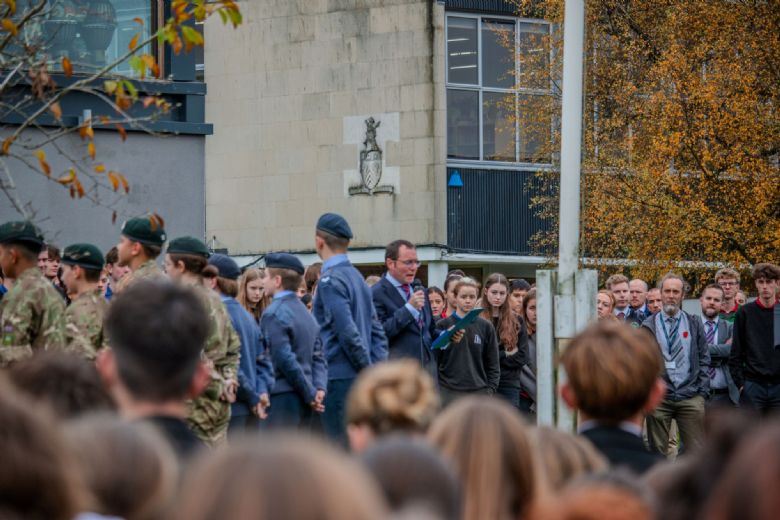Remembrance at Balcarras

On Tuesday 11th November we organised our annual remembrance ceremony around the flagpole. Mr Burke said a few words before Ben Carroll played the last Post. The whole school then observed a silence until Ben played the Reveille. A copy of Mr Burke’s speech is below:
107 years ago almost to the minute the guns fell silent on the Western Front and the Great War came to an end. Today is Remembrance Day. Ever since 1919 we have gathered in ceremonies like this one to remember those who gave their lives in that terrible conflict and in wars since.
About 20 million people died in the First World War and sadly millions of people have died since in other wars. War continues to be a feature of life on our planet. We should all look to build a world that is free from war and we should prize the peace and security that we benefit from living here in Cheltenham.
I can’t imagine going to war. I can’t imagine what it must feel like to kill someone or to fear for my own life. I hope that none of us will ever be able to imagine it although I know there are several Balcarras pupils who have been affected by the scourge of war.
One thing we can do is to learn about war. In your history lessons you will learn about the First World War, the Second World War and other conflicts. Some of you might have been on the Battlefields trip to Northern France and Belgium. I have visited this region several times.
One of the most poignant places I have ever visited is the Devonshire Cemetery near Mametz on the Somme. The Devonshire Regiment took part in the Battle of the Somme which was a huge British offensive that would ultimately cost thousands of lives. The Devonshire Regiment left their trench at Mansel Copse on July 1st 1916 and attacked German lines towards the town of Mametz. The attack failed and many men were killed. Their bodies were brought back to the trench from where they attacked and were buried.
Shortly afterwards a wooden cross was erected with the inscription carved on it: “The Devonshires held this trench, the Devonshires hold it still.” Today this inscription is carved on to a stone plaque which stands at the entrance to the cemetery.
One of the 136 soldiers buried here is the poet William Noel Hodgson. His most famous poem is Before Action in which he seems to predict his own death. It was published two days before he died. Here is the last verse:
I, that on my familiar hill
Saw with uncomprehending eyes
A hundred of thy sunsets spill
Their fresh and sanguine sacrifice,
Ere the sun swings his noonday sword
Must say good-bye to all of this; –
By all delights that I shall miss,
Help me to die, O Lord.
So many people have had their lives taken away or destroyed by war. Let us remember their sacrifice.
Now Ben will play the Last post and then we will stand in silence. The silence will be broken by the Reveille which will bring this service to an end.

